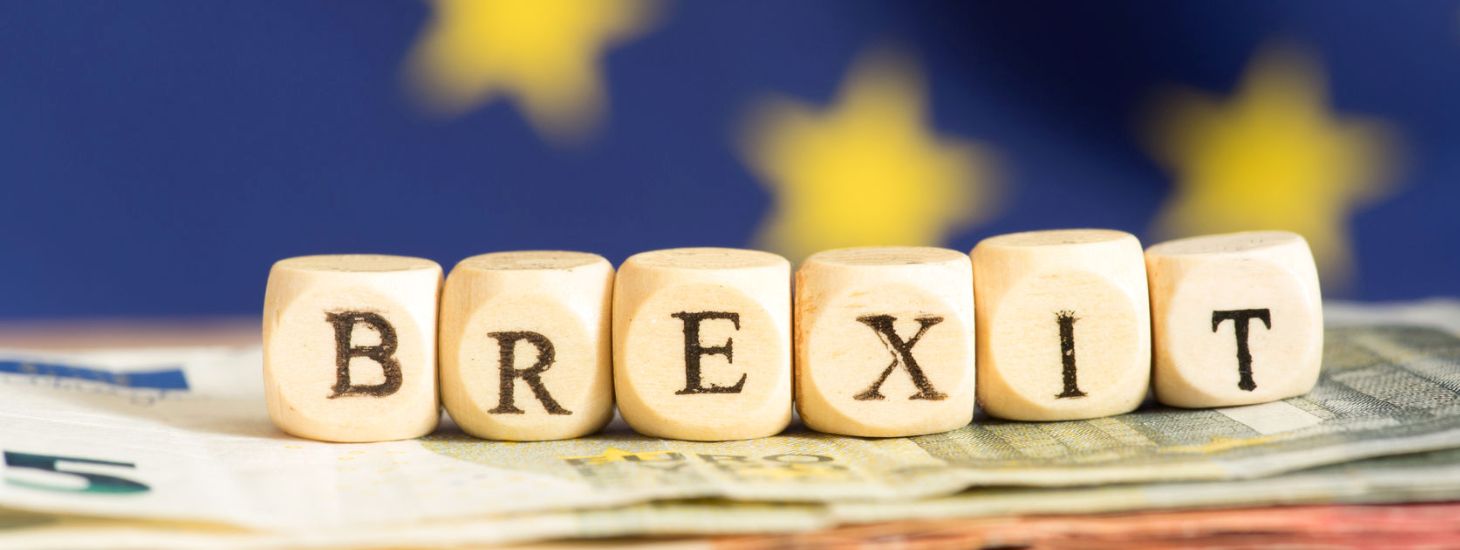Welcome to the States of Guernsey's Brexit page, where you'll find important information about the UK's exit from the EU and any related impacts for our community.
Please see below for an overview of Brexit and links at the bottom to pages containing relevant information on a range of key areas.
What is Brexit?
- Brexit is the term used to refer to the process of the United Kingdom's (UK) withdrawal from the European Union (EU). There were several stages to that withdrawal.
- 23 June 2016 - Referendum
- A referendum was held in the UK on Thursday 23 June 2016 to decide whether the UK should leave or remain in the EU. The leave vote won with 51.9%, with the remain vote at 48.1%. The referendum turnout was 71.8%.
- 29 March 2017 - Article 50 of the Lisbon Treaty triggered
- Article 50 of the Lisbon Treaty, which empowers the process of an EU Member State to leave the EU, was triggered by the then-UK Prime Minister on 29 March 2017. This set a two-year negotiating period for the UK and EU to decide on the terms of leaving and set a leave date.
- March 2017-January 2020 - Negotiation on terms of withdrawal and date for UK to cease to be a Member State of the EU
- The original date set for the UK's withdrawal from the EU was 29 March 2019. That date was changed on several occasions (to 12 April 2019, 31 October 2019 and finally 31 January 2020). A Withdrawal Agreement was negotiated between the UK and the EU. It was approved by the UK Parliament (with the relevant European Union (Withdrawal Agreement) Act 2020 given Royal Assent on 23 January 2020) and subsequently by the European Parliament (on 29 January 2020).
- 31 January 2020 (11pm GMT) - UK officially leaves the EU and ceases to be Member State of the EU
- On 31 January 2020, the UK left the EU when the Withdrawal Agreement came into effect.
- 31 January 2020 (11pm GMT)-31 December 2020 (11pm GMT) - Transition period/implementation period
- During the 11 month period until 31 December 2020, the UK and EU were in a 'transition period' and the terms of the Withdrawal Agreement were in effect. During the transition period, the UK had left the EU in law (so it was no longer an EU Member State) but the same rights and obligations applied to the UK as if it were still a member of the EU.
- For the Bailiwick of Guernsey, the rights and obligations that Protocol 3 (see the section called 'Guernsey's relationship with the EU') provided for, in effect, continued during the transition period. The free movement of goods continued. As the Bailiwick was already outside the EU for the free movement of services, including financial services, there was no change in these trading relationships during the transition period. Transport and people continued to move between the Bailiwick, the UK and the EU as before.
- During the transition period, the UK negotiated with the EU about the future relationship between them. The States of Guernsey continued to engage with the UK Government so that our interests were represented in those negotiations where appropriate.
- 31 December 2020 (11pm GMT) - Transition period ends
- On 31 December 2020, the transition period ended and, instead, the new UK/EU relationship took effect under the UK-EU Trade and Cooperation Agreement.
Guernsey's relationship with the EU
- This section refers to the history of Guernsey's relationship with the EU. It does not reflect the relationship which exists from 11pm on 31 December 2020 and this section will be updated soon. In the meantime, you may find it helpful to refer to the States of Guernsey's latest Brexit-related Policy Letter and Resolutions (December 2020) and the update statement given by the Policy & Resources Committee in the March 2021 States Meeting.
- Introduction
- In 1967 Guernsey was faced with the prospect of the United Kingdom joining the European Economic Community (EEC). The United Kingdom Government at that time held out no prospect of the Bailiwick of Guernsey having a limited connection with the EEC, which it contended would require a modification of the Treaty of Rome which, in all inevitability, would not be granted. It seemed in 1967 there were two options for Guernsey - to become part of the EEC or to seek independence.
- The loss of long-established virtual sovereignty was plainly at risk if Guernsey joined the EEC. There was great concern locally, however the UK's application to join was rejected.
- In 1971, when the UK Government renewed its application to join the Community, similar issues confronted the islands.
- Happily, as a result of representations made to the Home Office and able negotiating by the UK Government's chief negotiator, The Right Honourable Geoffrey Rippon, a deal acceptable to the Channel Islands and Isle of Man was negotiated.
- On 19th November 1971, Geoffrey Rippon addressed the States of Deliberation in special session. He said: "Under the proposals your fiscal autonomy has been guaranteed. I can say quite categorically that there will be no question of your having to apply a value-added tax or any part of Community policy on taxation."
- He offered "a choice of accepting or rejecting the terms that have been negotiated" and stated that it was not for him "to try to influence you in that decision, because the decision is yours, and yours alone. I can only say to you today that I know what my decision would be".
- On 15th December 1971 the States of Guernsey concurred by voting unanimously to accept the negotiated terms.
- Protocol 3 to the UK Treaty of Accession to the European Economic Community
- During the period that the UK was an EU Member State, Guernsey was neither a separate Member State nor an Associate Member of the European Union. The terms relating exclusively to the Channel Islands and the Isle of Man were subsequently embodied in Protocol No. 3 of the Treaty of Accession of the United Kingdom to the EEC, signed on 22 January 1972. During the transition period (31 January 2020-31 December 2020) the relationship between the Bailiwick and the EU functions as if Protocol 3 was still in place.
- Protocol. 3 placed the Channel Islands and the Isle of Man within the Common Customs territory and the Common External Tariff of the EEC. Broadly speaking this meant that no customs duties were applied to goods exported to members of the customs union but a common customs tariff applied to goods imported into the customs union from non-member countries.
- Protocol 3 also provided that Guernsey was "within" the EU for most of the purposes of the free movement of goods (e.g. so that Articles 28, 30, 34-36 and 110 of what is now the Treaty on the Functioning of the European Union ("TFEU") apply) but outside the EU for other purposes, in particular non-customs related fiscal matters and the free movement of persons and services. The Islands were not eligible for assistance from the Union's structural funds or under the support measures for agricultural markets.
- Under Protocol 3 the authorities in the Bailiwick had to treat natural and legal persons of the European Union equally and therefore in a non-discriminatory manner. Although Channel Islanders are British citizens and hence, whilst the UK was a member of the EU, European citizens, they were not entitled to take advantage of the freedom of movement of people or services unless they were directly connected (through birth, descent from a parent or grandparent, or five years' continuous residence with the United Kingdom). This meant that some Islanders who do not have any parents or grandparents born in the UK (being either born in Guernsey or elsewhere in the world) did not have freedom of movement within the EU and their passports were marked accordingly. These passports are marked with the words "The holder is not entitled to benefit from EU provisions relating to employment or establishment". They were able to seek work permits or secure a university place allocated to non-EU citizens.
- Application of EU law
- In the early years after Protocol 3 came into force, it was a relatively simple matter to identify what legislation was needed in Guernsey to implement EU Directives and to identify applicable EU Regulations falling within the scope of Protocol 3 because they tended to be made in a compartmentalised way according to subject matter. Nowadays, matters have become more complicated and a provision relating to agriculture might be found in a Directive about development or climate change.
- In brief, Regulations are directly applicable in EU Member States. Insofar as they were binding on the Bailiwick under Protocol 3, they had immediate legal effect and formed part of Bailiwick law without the need to enact local legislation.
- Directives, on the other hand, are binding on Member States in terms of the result to be achieved but it is for national authorities to decide the form and methods of implementing them. Insofar as they may have been applicable under Protocol 3, they could be implemented by Ordinance under the European Communities (Implementation) (Bailiwick of Guernsey) Law, 1994, as amended. This meant that the Bailiwick could bring relevant legislation into effect swiftly without the need for Royal Assent. Further, under this law, the Bailiwick (meaning for this purpose the States of Guernsey in relation to Guernsey; States of Alderney in relation to Alderney and Chief Pleas in relation to Sark), had the power to implement "any provision" of EU law, whether or not it fell within Protocol 3. This meant that other provisions of EU law which might, for example, have been thought of interest to the Bailiwick may have been brought into force under this legislation even if there was no obligation to do so under the terms of Protocol 3.
- During the transition period (until 31 December 2020), EU law continued to apply directly in the Bailiwick only insofar as it applied under the terms of Protocol 3.
- Development of EU competencies and the Bailiwick
- In 1985 the European Community initiated the single market initiative. It was a community strategy to intensify harmonisation and it included monetary union in 2002 with the introduction of the Euro.
- In 1992 the Maastricht Treaty changed a purely economic community into a union embracing additional areas of co-operation. It enacted a three-pillar legal structure for the EU. It included new intergovernmental sections covering co-operation in foreign and security policy, police and judicial co-operation.
- In 2007, the Lisbon Treaty was agreed. The Treaty implemented some of the reforms proposed by the Constitutional Treaty, which had been agreed in 2004 before being subsequently rejected by several member States, such as, inter alia: giving the Union a single legal personality; adapting the institutional framework; replacing the term 'Community' with 'Union'; and creating a new architecture of treaties. The Lisbon Treaty also abolished the pillar system replacing it with categories of competence, namely, conferred, shared and supporting competences, alongside special competences such as Common Foreign and Security Policy (CFSP) and gave legal force to the Charter of Fundamental Rights of the EU. The EU legal personality enables it to conclude treaties within its area of competence,
- So far as the Channel Islands and Isle of Man were concerned, it was for each to consider the extent to which they wished to take on board any intergovernmental measures. No such EU obligation arose under Protocol 3. It was for the islands themselves to decide whether, and to what extent, they wished to be included in any such measures and the United Kingdom undertook that the islands would be fully consulted about any such measures which may affect them.
- Current relationship with the EU
- On the afternoon of 24th December 2020, the UK Government and the European Parliament announced that an agreement in principle had been reached on a future relationship with the European Union ('EU'), for trade, security and other cooperation. This agreement is called the Trade and Cooperation Agreement (the TCA).
- The three parliaments of the Bailiwick of Guernsey (Guernsey, Alderney and Sark) considered their involvement in the UK-EU relationship, through the TCA, at meetings on 27th December 2020. Each of the parliaments resolved to participate in the participation in the new UK-EU relationship, insofar as it will apply to the Bailiwick, in particular, in respect of fisheries and the trade in goods.
- The UK Government published the legislation required to bring the TCA into effect, the European Union (Future Relationship) Bill on 29th December 2020. The UK Parliament ratified the Bill on 30th December. Due to the time available between the end of negotiations and the end of the transition period, following the formal signing of the TCA on 29th December the European Council adopted, by written procedure, the decision on the signing of the TCA and its provisional application as of 1 January 2021, pending the consent of the European Parliament and conclusion by the Council decision in 2021.
- The UK Government published the legislation required to bring the TCA into effect, the European Union (Future Relationship) Bill on 29th December 2020. The UK Parliament ratified the Bill on 30th December. Due to the time available between the end of negotiations and the end of the transition period, following the formal signing of the TCA on 29th December the European Council adopted, by written procedure, the decision on the signing of the TCA and its provisional application as of 1 January 2021, pending the consent of the European Parliament and conclusion by the Council decision in 2021.
- The transition period ended at 11pm on 31 December 2020, when the TCA took effect and the new UK-EU relationship began, including in respect of the Bailiwick.
Withdrawal Agreement
- A Withdrawal Agreement and Political Declaration on the future relationship between the UK and EU was endorsed at a special meeting of the European Council on 25 November 2018. However, that Withdrawal Agreement failed to receive the approval of the UK Parliament, having been rejected by MPs on three occasions. It can be found here: Former Withdrawal Agreement and Political Declaration
- A new Withdrawal Agreement and Political Declaration was agreed at the European Council on 17 October 2019. The relevant Bill received UK parliamentary approval and became the European Union (Withdrawal Agreement) Act 2020[HS1] on 23 January 2020. The Withdrawal Agreement was approved by the European Parliament on 29 January 2020. It can be found here: Ratified Withdrawal Agreement and Political Declaration
Reports by UK Parliamentary committees
House of Commons Justice Committee Report-The Implications of Brexit for the Crown Dependencies [361kb]
House of Lords - Brexit "The Crown Dependencies" 19th series 2016-17 [408kb]
Lords EU Select Committee Government response - Brexit and the Crown Dependencies [215kb]
House of Lords Crown Dependencies letter to David Davis [81kb]
House of Lords report - Brexit 'Deal or No Deal' [608kb]
Useful Links
- · States of Alderney http://www.alderney.gov.gg/
- · Sark Chief Pleas https://sarkgov.co.uk/
- · Guernsey Chamber of Commerce http://www.guernseychamber.com /
- · Guernsey Finance https://www.weareguernsey.com/
- · Guernsey Financial Services Commission https://www.gfsc.gg/
- · Channel Islands Brussels Office http://www.channelislands.eu/
- · World Trade Organisation https://www.wto.org/
- · UK Government - Common Travel Area https://www.gov.uk/government/publications/common-travel-area-cta/common-travel-area-cta
- · The Office of the Data Protection Authority https://odpa.gg/
- · Bailiwick of Guernsey / Bailiwick of Jersey Office of the Director of Civil Aviation http://www.cidca.aero/
- · Le Bureau des Îles Anglo-Normandes https://www.bianfrance.org/le-bureau/














